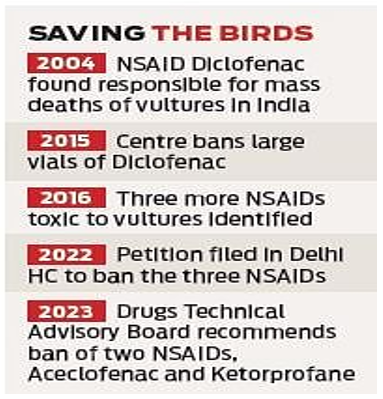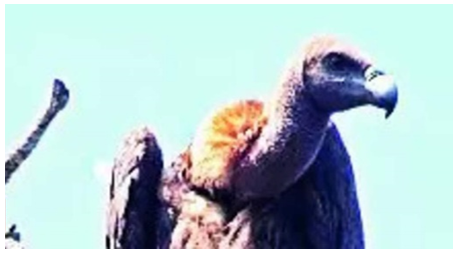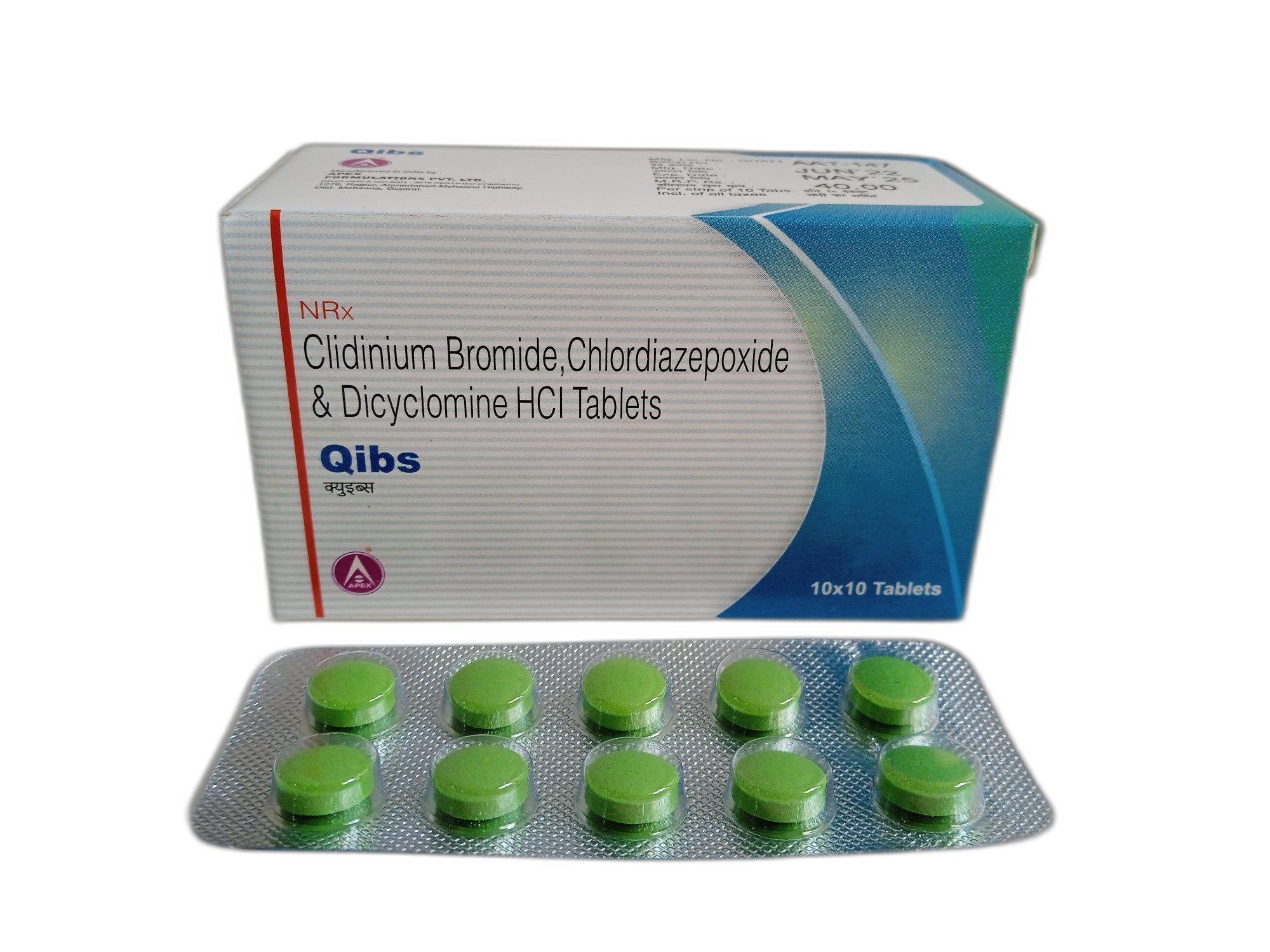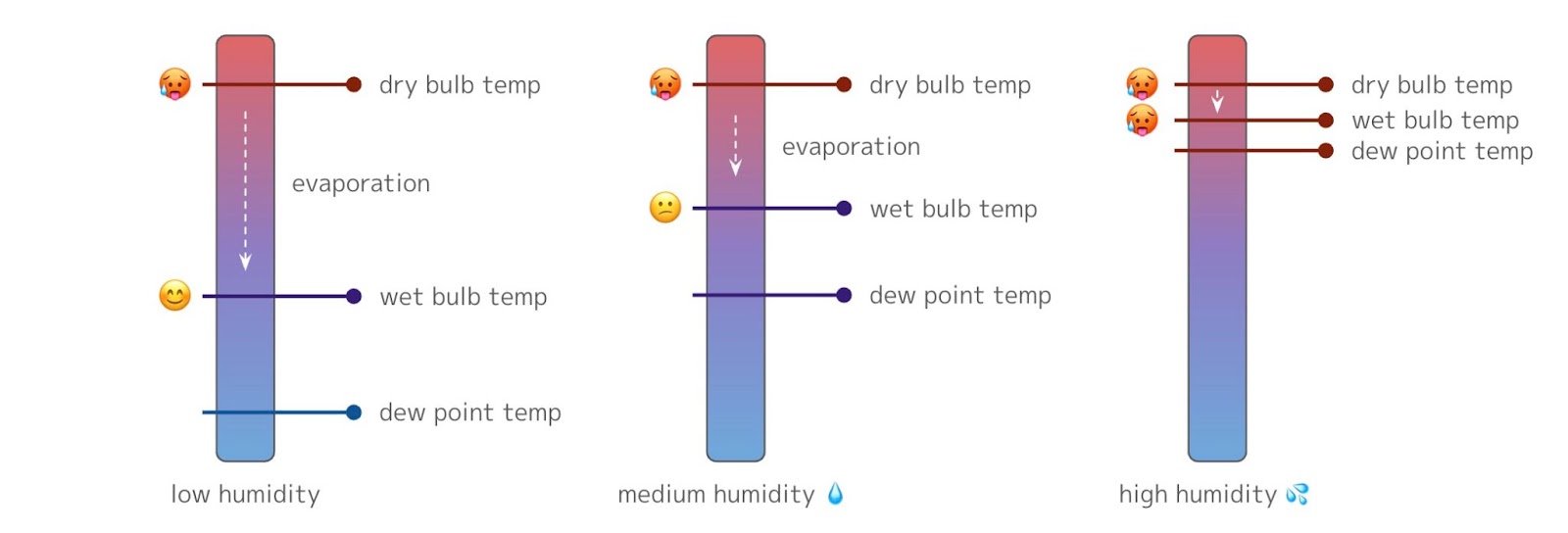- Courses
- ABOUT US
- OUR TOPPERS
- TEST SERIES
- FREE STUDY MATERIAL
- VIDEOS
- CONTACT US
Recommendation of Drugs Technical Advisory Board (DATB)
Recommendation of Drugs Technical Advisory Board (DATB)
24-06-2023

Latest Context
Recently, the Drugs Technical Advisory Board (DATB) banned two Nimesulide are Non-steroidal anti-inflammatory drugs (NSAIDs) that are used in veterinary practice. These drugs have been proven to be toxic to the vultures.
Key Recommendations:
- Ban: A ban on the manufacturing, sale and distribution of two NSAIDs Ketoprofen and Aceclofenac has been recommended by DATB in its 89th meeting. In livestock treatment, these two drugs are used extensively. But, DTAB has not made any recommendation for Nimesulide which is also a similar and equally harmful NSAID to vultures.
- Due to the impact on animal health and the environment, DATB has recommended setting up a committee. It will prepare the list of equally harmful drugs.
Need for Ban: These drugs are very harmfully affecting the health and well-being of vultures in addition to impacting their conservation. According to estimations, voluminous change in the vulture population has taken place from 4 crores to just 19,000 because of the widespread and unchecked use of NSAIDs.
- Ketoprofen, Aceclofenac, Diclofenac and Nimesulide are Non-steroidal anti-inflammatory drugs (NSAIDs) used in veterinary practice that has been proven toxic to vultures and other birds of prey. Diclofenac is already banned by India.
Benefits of Vultures for the Environment
- It will help in increasing the population of vultures which are known to be scavengers.
- Vultures helps in cleaning up and improving the health of the ecosystem by eating dead animals’ body.
- They have the potential to effectively control infection in our ecosystem.
- Vultures are also helpful in lessening the risk of water contamination due to the dead animals near water bodies and thus they are contributing to the mitigation of disease.
Population of Vultures in India: There are a total number of nine species of vultures found in India.
- Oriental White-backed Vulture, Long-billed Vulture, Slender-billed Vulture, Red Headed Vulture, Egyptian Vulture, Himalayan Griffon, Indian Griffon Vulture, Cinereous Vulture and Bearded Vulture or Lammergeier.
- Population of White-backed Vulture, Slender-billed Vulture, and Long-billed Vulture (all three Critically Endangered) has declined drastically over the past decades
Drugs Technical Advisory Board (DTAB)
- As a statutory body, it was formed under the Drugs and Cosmetics Act, 1940. It is part of the Central Drugs Standard Control Organization (CDSCO) in the Ministry of Health and Family Welfare
- It advises the Union and State Governments on technical matters related to the administration of this Act.
- It also advises and takes policy decisions on technical matters related to drugs in India.



